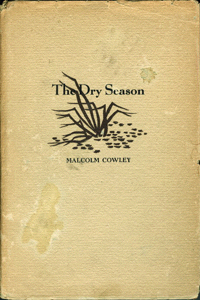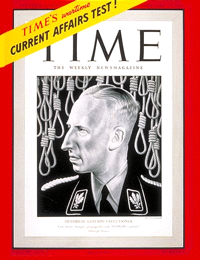- Articles
- Commonweal
- TIME – Reviews
- TIME – Articles
- TIME – Cover Stories
- TIME – Foreign News
- Life Magazine
- Harper’s: A Chain is as Strong as its Most Confused Link
- TIME – Religion
- New York Tribune
- TIME
- National Review
- Soviet Strategy in the Middle East
- The Coming Struggle for Outer Space
- The Left Understands the Left
- To Temporize Is Death
- Big Sister Is Watching You
- Springhead to Springhead
- Some Untimely Jottings
- RIP: Virginia Freedom
- A Reminder
- A Republican Looks At His Vote
- Some Westminster Notes
- Missiles, Brains and Mind
- The Hissiad: A Correction
- Foot in the Door
- Books
- Poetry
- Video
- About
- Disclaimer
- Case
- Articles on the Case
- Hiss Case Coverage: TIME 1948
- Hiss Case Coverage: TIME 1949
- Hiss Case Coverage: TIME 1950
- Hiss Case Coverage: TIME 1951
- Hiss Case Coverage: TIME 1952
- Trial by Typewriter
- I Was the Witness
- The Time News Quiz
- Another Witness
- Question of Security
- Fusilier
- Publican & Pharisee
- Recent & Readable
- Recent & Readable
- Kudos
- Letters – June 16, 1952
- Readable
- Letters – June 23, 1952
- Recent & Readable
- Recent & Readable
- Recent & Readable
- Nominee for Veep
- Recent and Readable
- Recent and Readable
- Democratic Nominee for President
- Recent & Readable
- Recent & Readable
- Fighting Quaker
- Recent & Readable
- Recent & Readable
- Recent & Readable
- Timely Saints
- Nixon on Communism
- People
- Who’s for Whom
- 1952 Bestsellers
- Letters – December 15, 1952
- Year in Books
- Man of Bretton Woods
- Hiss Case Coverage: TIME 1953
- Hiss Case Coverage: TIME 1954
- Hiss Case Coverage: TIME 1955
- Hiss Case Coverage: TIME 1956-1957
- Private
Books: U.S. At War: Inopportune
Monday, Feb. 16, 1942
U.S. At War: Inopportune
 Most inopportune book of the month is The Dry Season, a slim, sage green volume of 17 poems by Malcolm Cowley, sometime literary editor of The New Republic, now chief information analyst of the Office of Facts and Figures. Congressman Martin Dies recently charged Cowley with having had “seventy-two connections… with the Communist Party and its front organizations.”
Most inopportune book of the month is The Dry Season, a slim, sage green volume of 17 poems by Malcolm Cowley, sometime literary editor of The New Republic, now chief information analyst of the Office of Facts and Figures. Congressman Martin Dies recently charged Cowley with having had “seventy-two connections… with the Communist Party and its front organizations.”
Two of the poems in The Dry Season seem designed to make Dies lift his calculations to 74.
“Tomorrow Morning” is an appeal to the “Mechanics of the morning, you of the blunt hands, the sensitive fingers,” to remember in the society of the future the anonymous intellectuals who were “swept by the same flood of passion toward the morning that is yours.” Some memorable lines:
We must rouse the labor unions, we must warn the Central Committee.
The “Last International” is Chief Analyst Cowley’s prescient vision of the dead march of his comrades “against the Capitol”: I saw them, yes, I saw their unbreathing armies marching against the Capitol in ranks that filled the boulevard from curb to curb….
He saw their “tight-clenched bony fists” and forearms raised in salute. He also saw the soldiers waiting for them.
“Comrades,” pleaded Poet Cowley, “not weaponless, not to crumple under fire. No farther, comrades.” But the comrades marched right on, even in the face of “an enormous thundercrack.”
I saw them sweeping forward, saw the soldiers that cast their rifles down and blindly fled; barons I saw and bankers and archbishops driven before the whirlwind of the dead.
Then with stone walls crumbling, bar racks and asylums emptying fast, penitentiaries ablaze, and the Capitol presumably under control, Poet Cowley heard “an unchoked sigh, a moan of liberation” rise from mean streets, moonless areaways, factory gates, convict camps and the Cotton Belt.
The sky was suddenly blue and the sun shone red.
Other poems in Cowley’s new book are nostalgic American lyrics in the vein of his earlier collection, Blue Juniata. They reveal sound, minor poetic talent.
Archives
Tags
Adolf Berle Alexander Ulanovsky Alger Hiss Arthur Koestler Atlas Shrugged Ayn Rand Benn Steil Cold Friday Cold War Communism Dwight Eisenhower FDR George W. Bush Ghosts on the Roof Harry Dexter White Harry Truman Hiss Case House Un-American Activities Committee HUAC Ignatz Reiss John Loomis Sherman John Maynard Keynes Joseph McCarthy Joseph Stalin Karl Marx Leon Trotsky Max Bedacht Middle East National Review Peter the Great Pumpkin Papers Ralph de Toledano Richard Nixon Ronald Reagan Sputnik TIME magazine Tony Judt Vladimir Lenin Walter Krivitsky Westminster Whittaker Chambers William F. Buckley William F. Buckley Jr. Winston Churchill YaltaArt Resources
- B&W Photos from Farm Security Administration-Office of War Information Collection
- Life of the People: Radical Impulse + Capital and Labor
- Art of Marxism
- Comrades in Art
- Graphic Witness
- Jacob Burck
- Hugo Gellert + Gellert Papers
- William Gropper
- Jan Matulka: Thomas McCormick Gallery + Global Modernist
- Esther Shemitz Chambers
- Armory Show 1913
Pages from old website
Official website of Whittaker Chambers ( >> more )
Spycraft
- China Reporting
- CIA
- CIA – Alger Hiss Case
- Cold War Files
- Cold War Studies (Harvard)
- Comintern Online
- Comintern Online – LOC
- CWIHP – Wilson Center
- David Moore – Critical Thinking and Intelligence Analysis
- DC Writers: WC Home
- Economist – Espionage
- Essays on Espionage
- FBI – Rogue DNS Checker
- House – Hearing 08/25/1948
- House – Hiss Subpoena
- InfoRapid: WC
- Max Bedacht
- New York Times – Espionage
- NSA – FOIA Request
- PBS NOVA – Secrets Lies and Atomic Spies
- Richard Sorge
- Secrecy News
- Sherman Kent – Collected Essays
- Spy Museum – SPY Blog
- Thomas Sakmyster – J Peters
- Top Secret America – Map
- UK National Archives
- Vassiliev Notebooks
- Venona Decrypts
- Washington Decoded
- Washington Post – Espionage
- Zee Maps
Libraries
- American Commissar by Sandor Voros
- American Mercury – John Land
- American Writers Museum
- Archive.org – HUAC
- Archive.org – Lazar home
- Archive.org – Lazar Report
- Archives.org: 1948 – Hearings
- Archives.org: 1950 – Sherman Lieber
- Archives.org: 1951 – Sorge
- Archives.org: Ernie Lazar FOIA
- Archives.org: Ernie Lazar FOIA Collection
- Bio – Bennet Cerf
- Bio – Zara Witkin
- Bloomsburg University: Counterattack
- Bloomsburg University: Radical Publications
- Brooklyn Eagle 1948
- Centre des Archives communistes en Belgique
- CIA FOIA WC
- Daily Worker (various)
- Daily Worker: Marxists.org
- DC – Kudos
- DC – ORCID
- DC – ResearcherID
- DC – ResearchGate
- DC – SCOPUS
- Digital Public Library of America
- Erwin Marquit – Memoir
- FBI
- FBI Vault – WC
- Google: Books – WC
- GPO – WC
- GW – ER Papers: WC
- GWU: Eleanor Roosevelt WC
- Harvard College Writing Center – WC Summary
- Hathi: WC
- IISH: Marx Engels Papers
- ILGWU archives
- Images AP
- Images Corbis
- Images Getty Time Life
- Images LOC
- INKOMKA Comintern Archives
- International Newsletter of Communist Studies (Germany)
- JJC/CUNY – HC
- Labor Archives in the United States and Canada
- Life – WC
- LOC LCCN WC
- NBC Learn K-12: Spy Trials
- New Masses (Archive.org) 1926–1933
- New Masses (Marxists.org) 1926–1933
- New Masses (USussex) 1926–1938
- NSA: FOIA requests
- Ollie Atkins Photos
- Open Library: WC
- People: WC
- Poetry: Defeat in the Village
- PSA Communism
- SLU Law: HCase
- SSRN: Berresford – Hiss Case
- SUFL: Collections
- Tamiment: Collections
- Truman Library – John S. Service
- Truman Library – Oral Histories
- Truman Library – WC
- UCBerk * eBooks
- UCBerk: China – Edgar Snow
- UCBerk: China – Grace Service
- UCBerk: China – Kataoka
- UCBerk: China – Mackinnon
- UCBerk: China – Owen Lattimore
- UCBerk: China – Stross
- UCBerk: France – Revolution
- UCBerk: Russia – Bread 1914-1921
- UCBerk: Russia – Comintern
- UCBerk: US – Conservatism WC
- UCBerk: US – Hollywood Weimar
- UCBerk: US – James Joyce
- UCBerk: US – Lawyers
- UCBerk: US – NY Intellectual
- UCBerk: US – Waterfronts
- UCLA Library Film & TV Archive
- UK National Archives: WC
- UMich: Salant Deception
- UPenn: US – Left Ephemera Collection
- UPitt: US – Harry Gannes
- USDOE
- USDoED
- USDOJ
- USDOS
- Wall St + Bolshevik Revolution – Anthony Sutton
- Wikipedia A-D
- WikiSearch WC
- WordPress themes – Anders Noren
- x FSearch – WC


